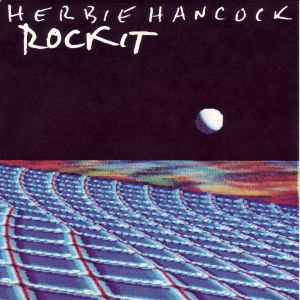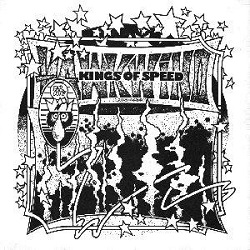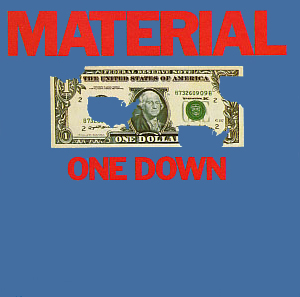Related Research Articles

Fred Brathwaite, more popularly known as Fab 5 Freddy, is an American visual artist, filmmaker, and hip hop pioneer. He is considered one of the architects of the street art movement. Freddy emerged in New York's downtown underground creative scene in the late 1970s as a graffiti artist. He was the bridge between the burgeoning uptown rap scene and the downtown No Wave art scene. He gained wider recognition in 1981 when Debbie Harry rapped on the Blondie song "Rapture" that "Fab 5 Freddy told me everybody's fly." In the late 1980s, Freddy became the first host of the groundbreaking hip-hop music video show Yo! MTV Raps.

"Rapper's Delight" is a 1979 hip hop track that serves as the debut single of American hip-hop trio the Sugarhill Gang, produced by Sylvia Robinson. Although it was shortly preceded by the Fatback Band's "King Tim III ", "Rapper's Delight" is credited for introducing hip hop music to a wide audience, reaching the top 40 in the United States, as well as the top three in the United Kingdom and number one in Canada. It was a prototype for various types of rap music. The track interpolates Chic's "Good Times", resulting in Chic's Nile Rodgers and Bernard Edwards threatening to sue Sugar Hill Records for copyright infringement; a settlement was reached that gave the two songwriting credits. It also interpolates Love De-Luxe's "Here Comes That Sound Again". The track was recorded in a single take. There are five mixes of the song.

Scratching, sometimes referred to as scrubbing, is a DJ and turntablist technique of moving a vinyl record back and forth on a turntable to produce percussive or rhythmic sounds. A crossfader on a DJ mixer may be used to fade between two records simultaneously.

William Otis Laswell is an American bass guitarist, record producer, and record label owner. He has been involved in thousands of recordings with many collaborators from all over the world. His music draws from funk, world music, jazz, dub, and ambient styles.

"Rockit" is a composition recorded by American jazz pianist Herbie Hancock and produced by Bill Laswell and Michael Beinhorn. Hancock released it as a single from his studio album Future Shock (1983). The selection was composed by Hancock, Laswell, and Beinhorn.

Material was an American band formed in 1979 and operating until 1999, led by producer and bassist Bill Laswell.

"Motorhead" is a song written by Ian "Lemmy" Kilmister while he was a member of the English space rock band Hawkwind. It was later recorded by Motörhead, as he called it this instead of Bastard on his then manager's advice.

"Rapture" is a song by American rock band Blondie from their fifth studio album Autoamerican (1980). Written by band members Debbie Harry and Chris Stein, and produced by Mike Chapman, the song was released as the second and final single from Autoamerican on January 12, 1981, by Chrysalis Records. Musically, "Rapture" is a combination of new wave, disco and hip hop with a rap section forming an extended coda.

"Deep Cover", also known as "187", is the debut solo single by American rapper Dr. Dre and his first track released after the breakup of N.W.A. The track was recorded for the soundtrack of the film Deep Cover for Dick Griffey's Solar Records and distributed by Sony Epic. The song features fellow American rapper Snoop Doggy Dogg in his first appearance on a record release. The master recording rights are owned today by Dick Griffey's family company Solar Legacy Entertainment Ltd.
Michael James Beinhorn is a North American record producer, composer, author, and musician. He has produced albums for Red Hot Chili Peppers, Soundgarden, Hole, Korn, and Marilyn Manson.
Celluloid Records, a French/American record label, founded by Jean Georgakarakos operated from 1976 to 1989 in New York City, and produced a series of eclectic and ground-breaking releases, particularly in the early to late 1980s, largely under the auspices of de facto in-house producer Bill Laswell.

The Ruler's Back is the second studio album by British-American rapper Slick Rick, released in 1991 on Def Jam Recordings.
Double Dee and Steinski is a duo of hip hop producers, composed of Doug "Double Dee" DiFranco and Steven "Steinski" Stein. They achieved notoriety in the early 1980s for a series of underground hip-hop sample-based collages known as the "Lessons".

"A Nightmare on My Street" is the third single from DJ Jazzy Jeff & The Fresh Prince's second studio album, He's the DJ, I'm the Rapper. The song became a crossover hit in the US, reaching #15 on the Hot 100. The song was released as a single in early 1988 on vinyl and cassette tape. The song humorously describes an encounter with the horror film villain Freddy Krueger and was considered for inclusion in the movie A Nightmare on Elm Street 4: The Dream Master, but the producers of the film decided against its inclusion.

One Down is a 1982 album by the New York based music group Material. The album finds Material moving away from their noisy no wave roots towards funk and R&B. The album was self-produced by Material, and was recorded by Martin Bisi in Brooklyn and Robert Musso in Manhattan. The album sees the band reduced to a duo of keyboardist Michael Beinhorn and bassist Bill Laswell, collaborating with different musicians and singers on each track. Whitney Houston made her recording debut as a lead vocalist on this album, for a version of the song "Memories".

"Paid in Full" is a 1987 song by American hip hop duo Eric B. & Rakim. Written and produced by group members Eric Barrier and Rakim Allah, the song was released as the fifth single from the duo's debut studio album of the same name. It became one of the group's most successful singles, owing heavily to a popular remix of the song by English electronic dance music duo Coldcut.

Wild Style Original Soundtrack is the official soundtrack to the 1983 hip hop film Wild Style. It was originally released in 1983 via Animal Records, and re-released twice: in 1997 via Rhino Entertainment, and in 2007 as 25th anniversary edition via Mr Bongo Records. The album was produced by Charlie Ahearn and Chris Stein with Fab 5 Freddy, who served as musical director of the project. It featured appearances from Busy Bee, Cold Crush Brothers, DJ Charlie Chase, Grandmaster Caz, Grand Mixer DXT, Grand Wizzard Theodore & the Fantastic Five, Double Trouble, Prince Whipper Whip, Rammellzee, AJ Scratch, D.J. Stieve Steve and Shockdell.

Deconstruction: The Celluloid Recordings is a compilation album by American composer Bill Laswell, released on January 19, 1993, by Restless Records. It comprises solo recordings alongside his work with artists such as Material, Massacre, Time Zone, Fab Five Freddy, Tour‚ Kunda, the Last Poets, Manu Dibango and Fela Kuti.
The discography of the Australian punk band Mr Floppy currently consists of two singles, one EP and three albums.

Luv(sic) Hexalogy is an album collaboration created and finalized posthumously by the Japanese producer Nujabes and Japanese hip hop artist Shing02. It is a jazz hip hop album that incorporates latin jazz/soul samples and drum beats to create the instrumentals. The scratching was performed by various DJs and the vocals/lyrics were created by Shing02.
References
- ↑ "Fab 5 Freddy / Beside* - Change The Beat (Vinyl)". Discogs.com. Retrieved 2016-10-26.
- ↑ "Change the Beat (Female Version) by Beside on WhoSampled". WhoSampled. Retrieved 2020-11-17.
- ↑ Technikart, (April, 2005), 91
- ↑ "The Celluloid Records Story (part 1 of 2)". YouTube. 2013-03-11. Archived from the original on 2021-12-20. Retrieved 2016-10-26.
- ↑ Graves, Jen (2010-11-02). "The Origins of That "Aaaaahhhh... Fresssshhhhh!" Sample - Line Out - The Stranger". Lineout.thestranger.com. Archived from the original on 2016-09-25. Retrieved 2016-10-26.